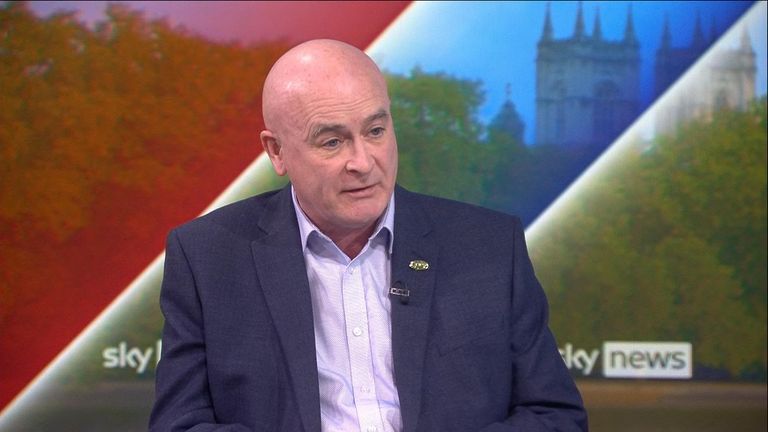[ad_1]
People are being warned to avoid the London Underground on Monday, with workers set to strike straight after the Jubilee weekend.
Thousands of members of the Rail, Maritime and Transport union (RMT) are staging a 24-hour walkout because of a dispute over jobs and pensions.
Tube lines across the capital will be affected from the start of service on Monday until 8am on Tuesday, with only some services running, Transport for London (TfL) said.
Many stations will be closed, especially those in central and south London, and those that do open may only be in operation for limited periods.
While the DLR, London Overground and TfL’s trams are not impacted, they are expected to be much busier.
Andy Lord, TfL’s chief operating officer, said: “I’d like to apologise to London for the impact this strike will have on journeys tomorrow and on Tuesday morning.
“We know it’s going to be damaging to London and the economy at a time when public transport is playing a crucial role in the capital’s recovery.”
Why are workers going on strike?
TfL is working on achieving financial sustainability on its operations by April 2023, as required by previous funding agreements with the government.
As part of that, TfL has proposed not recruiting into around 500 to 600 existing positions as they become vacant, which the RMT says constitutes lost jobs.
The union argues that working agreements will also be torn up, and that pensions are at risk.
TfL has insisted nobody will lose their job as a result of its proposals, and no changes are on the way for pensions.
General secretary Mick Lynch wants a face-to-face meeting with Sadiq Khan to “sort this mess out”.
“There’s no point in our union continuing to sit opposite management representatives who have neither the inclination nor the authority to negotiate a settlement, when the power lies with the mayor,” he added.
‘It’s not too late’
With London having been flooded with visitors for the Jubilee weekend, a major boost for the capital’s economy as it recovers from the pandemic, there are concerns over the timing of the strike action.
It comes ahead of the looming possibility of the biggest rail strike in decades, with RMT members nationwide having voted to walk out over pay, compulsory redundancies and safety concerns.
Richard Burge, chief executive of the London Chamber of Commerce and Industry, said the strike was “extremely disappointing” and called on the union and TfL to “sort out their dispute”.
He continued: “Ultimately, this will only harm London’s economy, and it is time for TfL to sort out their dispute with the RMT, so we can get back to building prosperity and showing the world that London is open for business.”
The transport secretary has previously warned that any rail strike could cause a “heart attack” to an industry already on life support.
Mr Lord said: “My message to the RMT is this – it’s not too late to call off tomorrow’s strike action.”
[ad_2]


